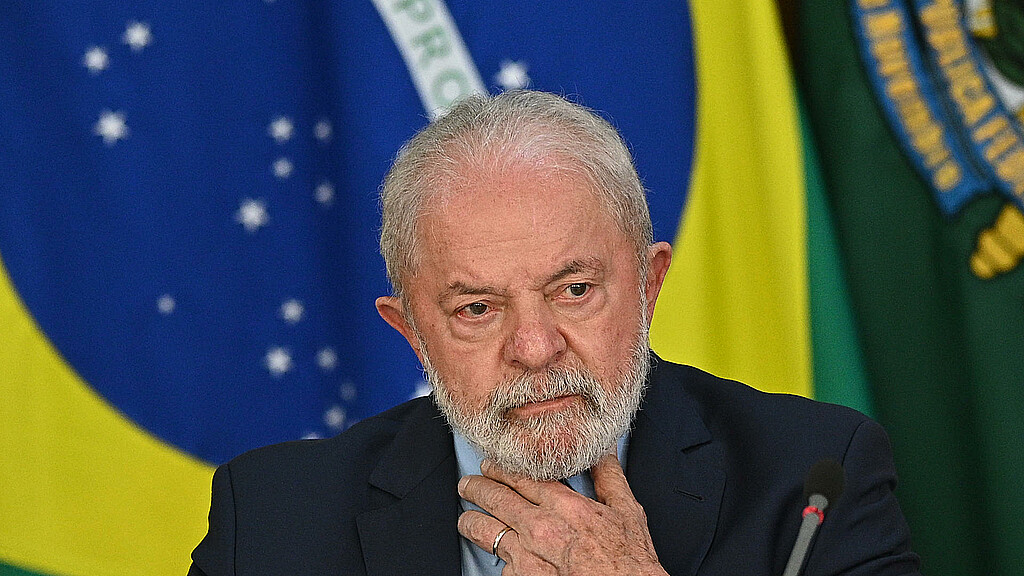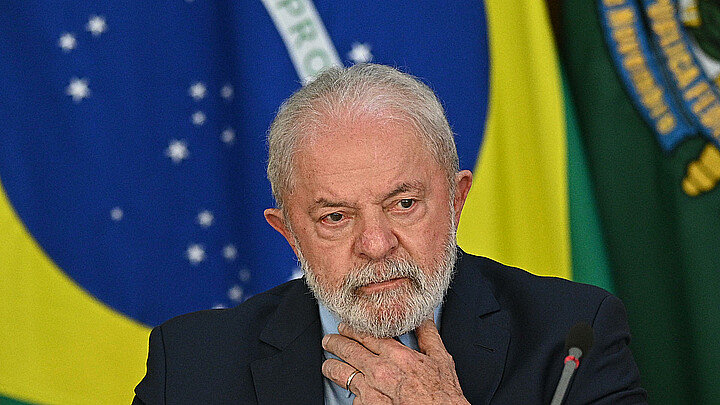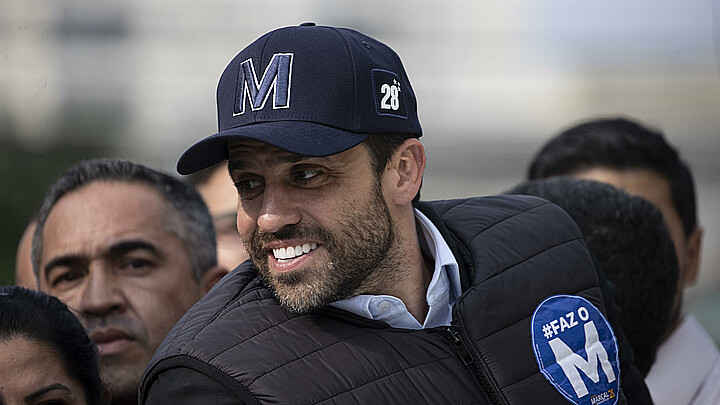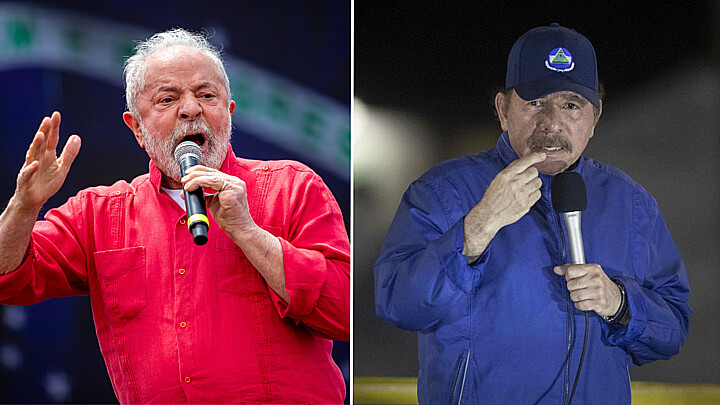Politics
Brazil enters new leftist era with Luiz Inácio Lula da Silva taking power
The 77-year old former president and union trade leader was sworn in among thousands of supporters who waved the red workers’ flag. The event was attended by other Latin American leftist leaders such as Gustavo Petro of Colombia to Chile’s Gabriel Boric of Chile

January 2, 2023 9:11am
Updated: December 10, 2024 8:52am
Luiz Inácio Lula da Silva, a living symbol of the Latin America’s left once again took the reins of presidential power on Sunday, 12 years after his last term. The 77-year old former president and union trade leader was sworn in among thousands of supporters who waved the red workers’ flag. The event was attended by other Latin American leftist leaders such as Gustavo Petro of Colombia to Chile’s Gabriel Boric of Chile.
Da Silva prevailed by a razor thin margin in what was one of Brazil’s closest elections, barely defeating former President Jair Bolsonaro who has since left the country with his family to vacation in Orlando, Florida. His victory is among the latest of other leftist candidates who have taken office amid a pink tide of socialist trends throughout the region.
Now that da Silva has returned to power however, the time for campaigning is over, and he will have to turn his attention to the hard work of leading one of Latin America’s largest country’s and economies.
“It’s time for unity and reconstruction,” da Silva told his inaugural audience as he spoke to a crowd of thousands, many of whom voted for the left leaning leader on his campaign to end poverty and destruction to the Amazon.
“A handful of people have it all, and then there are the masses, who are in need of everything… people lining up at butchers for leftover bones to relieve their hunger and, at the same time, people in line to buy imported cars and private jets,” he said. “No one can be happy in the middle of so much inequality.”
Brazil currently has one of the highest ratios of disproportionate income in the region.
While many of the supporters were cheering for da Silva’s return, they were also celebrating the end of the Bolsonaro era, propping up banners reading “love will conquer hate.”
Da Silva also gave a polarized speech, accusing the Bolsonaro campaign of “the most abject campaign of hate and lies” although he did not mention the former president by name.
Bolsanaro, who was both celebrated by the Brazilian right and criticized by its left for his friendship with former U.S. President Donald Trump followed Trump’s lead in declining to concede the election, which da Silva reportedly won with only 51% of the national vote.
Bolsanaro, a former military officer also raised concerns about election fraud before the vote. While Bolsanaro was the first Brazilian president to decline participating in the transition ceremonies by handing over the traditional green presidential sash to da Silva, he also encouraged his country to move forward with hope, crushing rumors he would participate in a coup.
Still, the Brazilian military made a strong presence at the event as a strong showing to prevent violence after Bolsonaro supporters clashed with police on Dec. 13 in the nation’s capital with protestors overturning vehicles and officers responding with tear gas.
There were also bomb scares in federal building, which mostly turned out to be false alarms.
Da Silva’s return to power is an unexpected turn of events for a former politico who was charged, convicted and imprisoned in April 2018 for corruption and money laundering. He was freed after 19 months of serving time after the Brazilian Supreme Court ruled that his conviction was not strong enough due to a technicality.
His conviction was never overturned.
Now da Silva will have to face a South American nation with more than 25 million people living in poverty and 33 million living in hunger. Some attribute the downturn to factors that arose beyond Bolsonaro’s control during the pandemic that left 700,000 people dead and the economy stalled. One Brazilian research group, Penssan, says the hunger rate increased from 19 million in 2020 to 33 million 2022.
Those numbers will most likely not stop from da Silva from moving forward with a leftist agenda with more government funded programs, especially since the Workers’ Party has also been an instrumental force in pushing the ratification of a new constitutional amendmentthat will allow da Silva’s new administration to spend an additional $28 billion this year.
The incoming president has also sworn to raise taxes on the wealthy.
“It’s unacceptable that Brazil’s richest 5% have the same income as the remaining 95%,” he said Sunday.
Da Silva attended the inauguration with his recent wife, Rosângela Lula da Silva, a much younger sociologist who wrote him affectionate letters while he was in prison.
“Likening herself to Eva Perón, the 1950s-era first lady of Argentina known for showering the poor with aid, Ms. da Silva has said she plans to play an active role in her husband’s government,” the Wall Street Journal reported.
The Journal additionally reported that while da Silva’s return to power is being celebrated by the left, many on the right are prepared to challenge his policies, particularly many residents of the Amazon the new president has purported to want to save.
Many of those residents are in “powerful farming groups” and “place more importance on development and job creation,” the Journal wrote.
In an illustration of the resistance da Silva may face, six of nine state governors who sworn in around the Amazon on Sunday declared continuing support for Mr. Bolsonaro.
Da Silva’s term is for four years and he may be reelected for a second consecutive term. A former president can run for office again later as da Silva did, just not after eight consecutive years.











